I. Хиерон от Сиракуза, конно надбягване
1. Съдържание
Няма по-добро за възпяване състезание от Олимпийското. Нека с химн да прославим сина на Кронос и щастливия дом на Хиерон, царя на Сиракуза. С дорийската лира ще споменем и за коня Ференик, който, без да бъде пришпорван, спечели надбягването при река Алфей (1-23).
Славата на Хиерон блести в колoнията на лидиеца Пелопс, в когото се влюби земетръсецът Посейдон. Разказвано е, че Тантал е убил сина си Пелопс и сварил тялото му, но това е лъжа - а и човек трябва да говори за боговете само добро (защото се разказва, как те разделили и яли от тялото на Пелопс). Но Пелопс не е бил убит, а е бил отнесен в дома на боговете, също като Ганимед. Тантал пък е наказан, защото е откраднал от безсмъртните нектар и амброзия и ги дал на своите сътрапезници. Греши човекът, който се надява да извърши нещо, тайно от бог (34-65).
Пелопс бил върнат, и когато станал мъж, пожелал да се ожени за Хиподамия; призовал Посейдон и го помолил да му помогне в състезанието с баща й Еномай. Дотогава Еномай, за да отлага брака на дъщеря си, вече бил убил тринадесет кандидати. И така, Пелопс получил от Посейдон златна колесница и крилати коне; спечелил състезанието, взел Хиподамия и тя му родила шестима сина. Сега гробът му е край река Алфей, близо до олтар, посещаван от множество чужденци (xenoi) (66-96).
А победителят в тези състезания е блажен през останалия си живот. Аз пък увенчавам героя с еолийска песен и съм сигурен, че не бих могъл да прославя с химн никого сред живите гърци (xenoi), който да има качествата на Хиерон.
Хората са велики в различни неща. Нека ти, Хиероне, да бъдеш на върха като цар, а аз - да общувам с победители и да съм пръв завинаги по мъдрост (или изкуство - sofia) сред гърците (97-117).
2. Коментари
This ode seems to owe its position at the head of Pindar's extant
works to Aristophanes the grammarian, who placed it there on account
of its being specially occupied with the glorification of the Olympic
games in comparison with others, and with the story of Pelops, who was
their founder.
Hieron won this race B.C. 472, while at the height of his power at
Syracuse. Probably the ode was sung at Syracuse, perhaps, as has been
suggested, at a banquet.
(E. Myers)
Syracuse was founded by a colony of Dorians from Corinth, under the Herakleid Archias, in Ol. 11, 3 (734 B.C.).
The constitution of Syracuse, originally aristocratic, was changed into a tyrannis by Gelon, prince of Gela, who reconciled the factions of the city, Ol. 73, 4 (485 B.C.). After Gelon became lord of Syracuse, he made it his residence, enlarged it, built up Achradina, added Tyche, and what was afterwards called Neapolis. All this was not accomplished without high-handed measures, such as the transplanting of the populations of other cities. Gela lost half its inhabitants. Kamarina was razed to the ground, and the Kamarinaians transferred in a body to Syracuse (see O. 4). Under Gelon's rule Syracuse became the chief city of Sicily, the tyrant of Syracuse one of the most important personages on Grecian soil.
The great battle of Himera, popularly put on the same day as the battle of Salamis -- really fought somewhat earlier -- ended in the signal defeat of the Carthaginians, who lost one hundred and fifty thousand men dead on the field.
The consequence of the victory at Himera was a vast accession of power and influence for Gelon. Anaxilas of Rhegion, and a number of Sicilian cities, recognized his supremacy. But in the midst of his plans and projects Gelon died of dropsy, Ol. 75, 3 (478 B.C.). To his brother, Polyzelos, he left the command of the army, the guardianship of his minor son, and the hand of his widow, daughter of Theron. Hieron, the elder of the surviving brothers, who had been prince of Gela, succeeded to the government. Owing to the machinations of Hieron, Polyzelos was forced to take refuge with Theron of Akragas, who was at once his father-in-law and his son-in-law; and a war between Hieron and Theron was imminent, had not a reconciliation been effected by Simonides, the poet. Polyzelos was allowed to return to Syracuse, but Hieron was thenceforward sole ruler.
In 474 the inhabitants of Kyme (Cumae) were hard pressed by the Etruscans. Hieron immediately granted the desired aid, and defeated the Etruscans in a naval engagement off Cumae. The year after -- Ol. 76, 4 (473 B.C.) -- Hieron defeated Thrasydaios, son of Theron, and Akragas and Himera both acknowledged his sway; but he granted them their independence and a democratic constitution.
To his success in war Hieron wished to add the heroic honors paid to the founder of a new city. This new city, Aitna, was founded, Ol. 76, 1 (476 B.C.), in the territory of Katana, the old inhabitants having been removed to Leontini. Ten thousand citizens were imported, half from Syracuse and Gela, the other half Peloponnesian immigrants. The constitution was Doric; and Hieron's son, Deinomenes, and his brother-in-law, Chromios, were put in charge. Hieron often called himself Aitnaios (P. 1); Chromios followed his example (N. 1), and the founding of the city was celebrated by the “Aitnaian women” of Aischylos, and by Pindar's first Pythian.
The court of Hieron was a centre of literature and art. Epicharmos was a frequent guest. Aischylos, Simonides, Bakchylides, Pindar were among the visitors. No Doric prince ever reached such a height of glory. He was brilliantly successful at the great games: Ol. 73 and 77, with the single horse; Ol. 78, with the chariot; Pyth. 26 and 27, with the single horse; Pyth. 29, with the chariot, and again with mules.
As a Doric prince, Hieron has found as little favor with posterity as he did with his Athenian contemporary Themistokles. A tyrant, he helped the moralists to make the uneasiness of crowned heads still more uneasy. He became the type of splendid success and of splendid misery; for he was tortured by bodily suffering, he was surrounded by sycophants and informers, and lived in an atmosphere of treachery and meanness. Those who see in Pindar's Hieronic odes sermons levelled at the unfortunate prince will be inclined to despise the greatest ruler of his day. A more humane judgment will recognize high qualities impaired by the faults that were engendered and exaggerated by the tyrannis.
Hieron died Ol. 78, 2 (467 B.C.), at Aitna, and upon his death received heroic honors.
The first Olympian celebrates the victory gained by Hieron, Ol. 77 (472 B.C.), with his race-horse Pherenikos. He was then at the height of his power and glory. Some put the ode four years earlier, Ol. 76 (476 B.C.).
(B. L. Gildersleeve)
II. Терон от Акрагант, надбягване с колесници (коне)
1. Съдържание
Лири и химни, кой бог, герой или мъж ще възпеем? Пиза е Зевсова, Херакъл установи игрите, но ние ще пеем за Терон. Той е защитник на Акрагант, неговите предци станаха око на Сицилия. Съдбовното време им носеше богатство и красота. Крониде, сине на Рея, послушай песента ми и остави на рода им бащината нива (1-15).
Дори и Хронос, бащата на всичко, не може да отмени никое от направените неща. Но щастливата съдба може да донесе забрава. Болезнената беда умира, победена от радостите, когато божията Мойра изпрати велико щастие.
Това се отнася и за добропрестолните дъщери на Кадъм. Загиналата от мълния Семела живее на Олимп, където вечно я обичат Палада, бащата Зевс и собственият й син. Неугасим живот завинаги в морето е отреден и на Ино, наред с дъщерите на Нерей (16-30).
На нас, смъртните не е отредено да имаме опит за смъртта, нито да знаем деня, в който ще умрем. Всеки път различни потоци от радости и мъки вървят към хората.
Така и фаталният син срещна Лай и го уби - и така изпълни древното пророчество, изказано в Пито. Като видя това, Еринията започна да гаси мъжете от рода му с взаимните им убийства. Но след Полиник остана Терсандър, почетен в нови подвизи и битки - и той бе цвят в помощ на дома на Адрастидите. Оттам взе корена на семето си синът на Енесидам - и е достоен да получи похвални песни под съпровод на лира (31-48).
В Олимпия получи наградата си сам, а при Пито и на Истъм - заедно с брат си, за дванадесетте пробега на конната четворка.
Победата обезсилва състезателното безумство. Ако някой знаеше бъдещето - че душите на умрелите тук веднага получават наказания и че в онова подземно владение на Зевс някой съди, произнасяйки думи с враждебна принуда. Но достойните мъже получават безболезнен живот сред зачетените от боговете (49-68).
А онези, които са били три пъти от всяка страна (на земята) и са запазили душата си от несправедливости, те отиват по пътя на Зевс в крепостта на Кронос - там, където полъхът на Океана подухва край Острова на блажените. Там те се увенчават според справедливите решения на Радамант, когото великият баща, съпругът на Рея, е поставил да седи край него. Там са Пелей и Кадъм; там е и Ахил, когото отнесе майка му, след като убеди с молби сърцето на Зевс - и който повали Хектор, непобедимия стълб на Троя (69-83).
Много са бързите стрели в колчана под лакътя ми - и те звучат за умните. Който знае много, расте като мъдрец; а онези, които само учат, със всеезичие надигат крясък като врани срещу божествената птица на Зевс.
Към Акрагант ще заговоря с клетвено слово и истинен ум: сто години градът не е раждал мъж, по-благодетелен и изобилен към приятелите си от Терон. Някои искат да укрият добрите дела на достойните мъже. Но след като пясъкът убягва на числото, то кой може да изкаже радостите, които онзи мъж даде на останалите хора? (84-100)
2. Коментари
Theron's ancestors the Emmenidai migrated from Rhodes to Sicily and
first colonized Gela and then Akragas (the Latin Agrigentum). His chariot won this victory B.C. 476.
(E. Myers)
Akragas (Agrigentum) was a daughter of Gela. Gela was founded, Ol. 22, 4 (689 B.C.), by a Rhodian colony; Akragas more than a hundred years afterwards, Ol. 49, 4 (581 B.C.). In Ol. 52, 3 (570 B.C.) the notorious Phalaris made himself tyrant of the city, and, after a rule of sixteen years, was dethroned by Telemachos, the grandfather of Emmenes or Emmenides, who gave his name to the line, and became the father of Ainesidamos. Under the sons of Ainesidamos, Theron and Xenokrates, the name of the Emmenidai was brought to the height of its glory, and an alliance formed with the ruling house of Syracuse. Damareta, the daughter of Theron, married first Gelon, and, upon his death, Polyzelos, his brother. Theron married a daughter of Polyzelos, and, finally, Hieron married a daughter of Xenokrates.
The Emmenidai belonged to the ancient race of the Aigeidai, to which Pindar traced his origin, and claimed descent from Kadmos, through Polyneikes, who was the father of Thersandros by Argeia, daughter of Adrastos. Evidently a roving, and doubtless a quarrelsome, race, the descendants of Thersandros went successively to Sparta, to Thera, to Rhodes, and finally to Akragas. Such was the ancestry of Theron, who made himself master of Akragas by a trick, which he is said to have redeemed by a just, mild, and beneficent reign. Under his rule Akragas reached its highest eminence, and Theron's sway extended to the neighborhood of Himera and the Tyrrhenian sea. When he drove out Terillos, tyrant of Himera, and seized his throne, Terillos applied to his son-in-law, Anaxilas of Rhegion, for help, who, in his turn, invoked the aid of the Carthaginians. Thereupon Theron summoned to his assistance his son-in-law, Gelon, of Syracuse, and in the famous battle of Himera the Sicilian princes gained a brilliant victory. The enormous booty was spent on the adornment of Syracuse and Akragas. Akragas became one of the most beautiful cities of the world, and the ruins of Girgenti are still among the most imposing remains of antiquity. A few years after the battle of Himera, Gelon died, Ol. 75, 3 (478 B.C.), and was succeeded by his brother Hieron in the rule of Syracuse. To the other brother, Polyzelos, were assigned the command of the army and the hand of Damareta, daughter of Theron, widow of Gelon, with the guardianship of Gelon's son; but the two brothers had not been on the best terms before, and Hieron took measures to get rid of Polyzelos, who was a popular prince. Polyzelos took refuge with Theron, who had married his daughter, and who in consequence of this double tie refused to give him up to Hieron...
Theron sat firmly on his throne again, and, after putting to death all his enemies, had the great satisfaction of gaining an Olympian victory, Ol. 76 (476 B.C.), which Pindar celebrates in this ode and the following.
Theron died Ol. 76, 4; Xenokrates, his brother, who won two of the victories celebrated by Pindar (P. 6 and I. 2), died either before him or soon after.
(B. L. Gildersleeve)
About the Latin Academy in the Vatican
13 years ago
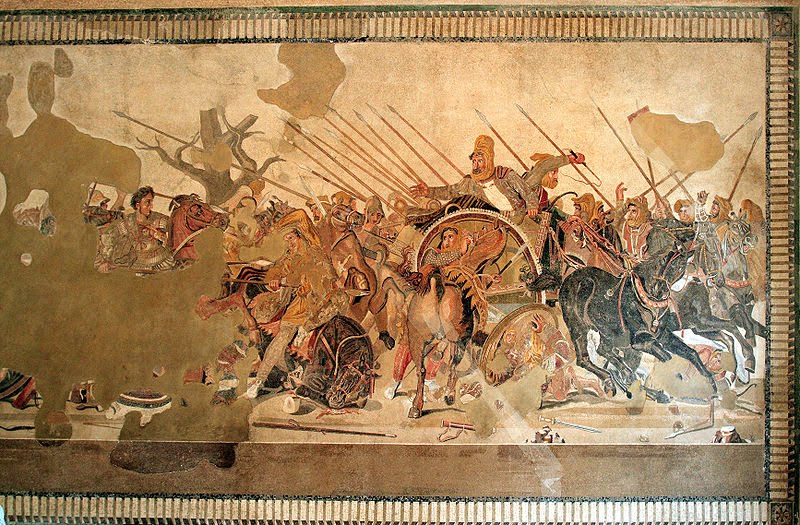
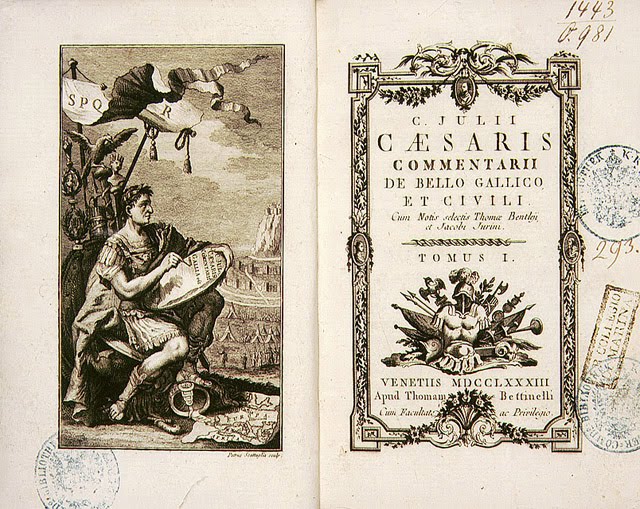
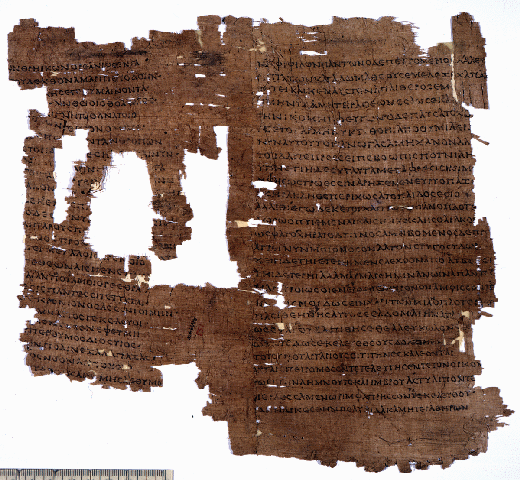
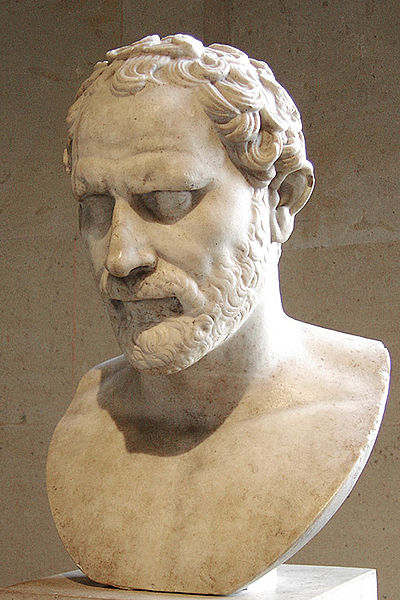


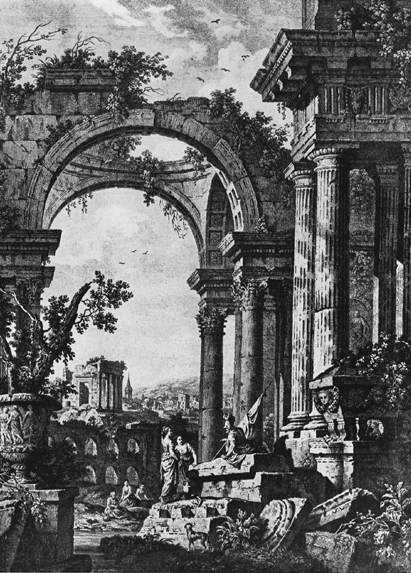




No comments:
Post a Comment